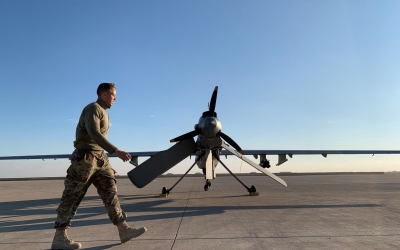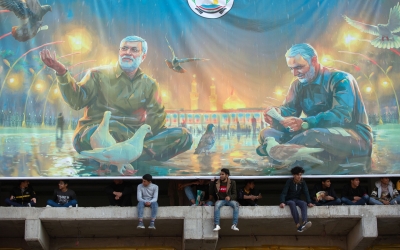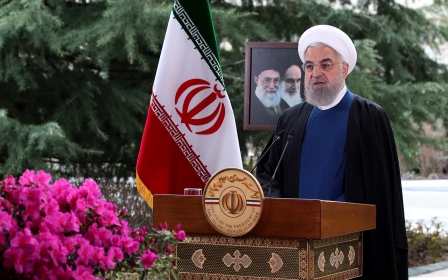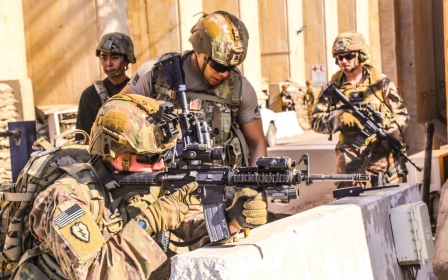Two rockets strike close to Iraq air base hosting US soldiers
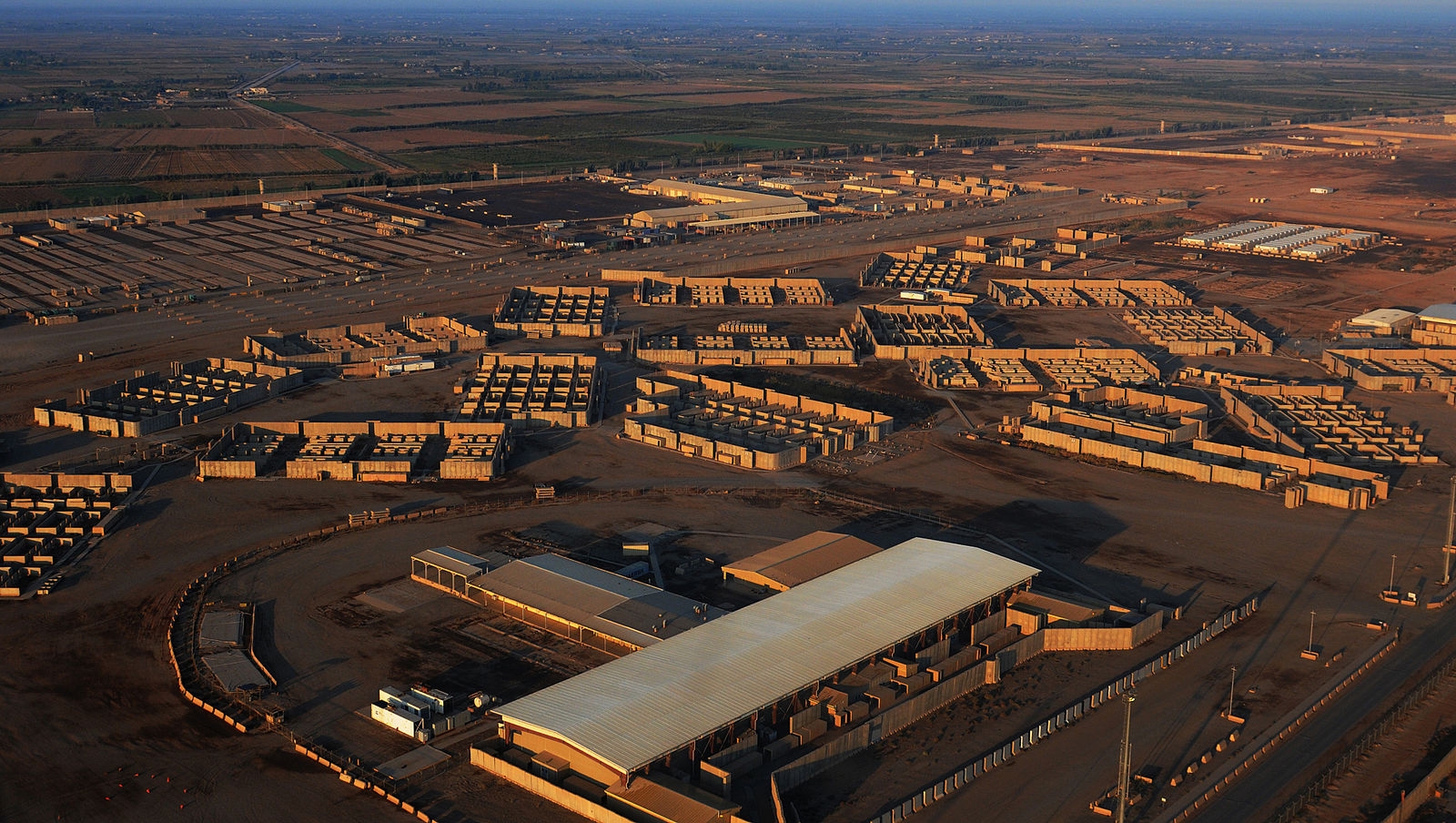
Two rockets hit near an Iraqi air base hosting US soldiers north of Baghdad on Sunday, three days ahead of a new "strategic dialogue" with Washington, a security source told AFP.
There was no immediate claim of responsibility for the strike, which caused no casualties or property damage. The US routinely blames Iran-linked Iraqi factions for such attacks on its troops and diplomats.
Initial investigations showed the attack aimed to strike Balad air base, north of Baghdad, but the rockets fell short and hit the village of al-Bu Asi just to the southeast, security officials told Reuters.
The most recent previous attack on Balad air base was on March 15 when it was hit by at least five rockets.
Sunday's was the 14th attack against American interests in Iraq - including troops, the Baghdad embassy or Iraqi supply convoys to foreign forces - since US President Joe Biden took office in January.
Two Americans and an Iraqi civilian have been killed in the attacks.
An Iraqi civilian working for a firm maintaining US fighter jets for the Iraq air force was also wounded in one attack.
The operations are sometimes claimed by obscure groups experts say are smokescreens for Iranian-backed organisations long present in Iraq.
Qais al-Khazali, a senior pro-Iran figure in the state-sponsored Hashed al-Shaabi paramilitary force, recently declared that the "resistance" was carrying out attacks and would step them up "unless the US withdraws all its combat forces from across Iraq".
Middle East Eye broke the story in early March that after frantic meetings in Baghdad, Beirut and Tehran, Iranian-backed Iraqi paramilitaries had agreed to stop attacks against US forces in Iraq on the condition that Iraqi Prime Minister Mustafa al-Kadhimi formally demands an American withdrawal.
Talks amid tension
The latest attack came as Washington prepares to launch a strategic dialogue with the government of Kadhimi, who has regularly received threats from pro-Iran factions.
The talks will be the first set of US-Iraq meetings under President Biden and are expected to set the tone for the relationship between the two countries during the next few years, the Associated Press reported.
Kadhimi faces the delicate task of balancing the interests of neighbouring Iran and the US, arch-rivals that are both deeply involved in Iraqi politics.
Washington on Wednesday extended by several months a sanctions exemption allowing Iraq to import electricity from Iran during the ferociously hot summers when air-conditioning sends demand spiking.
The US, which led a coalition from 2014 to oust the Islamic State group from its self-declared "caliphate" in northern Iraq and Syria, still has some 2,500 troops in Iraq.
Since the defeat of their shared enemy, Washington and pro-Iranian factions have exchanged both threats and fire.
In February, the US carried out a raid against pro-Iranian Iraqi fighters in Syria. UK-based advocacy group the Syrian Observatory for Human Rights reported that 22 of them had died, while the Pentagon reported just one death.
Biden's administration has stressed that the action was meant as a warning and to avoid further escalation of tensions between Tehran and Washington.
Pentagon spokesman John Kirby said Washington wanted to "send a very strong signal that we're not going to tolerate attacks on our people and our Iraqi partners".
But both sides are wary after a previous escalation in January 2020, sparked by the US assassination of top Iranian general Qasem Soleimani, took the arch-enemies to the brink of war.
Middle East Eye propose une couverture et une analyse indépendantes et incomparables du Moyen-Orient, de l’Afrique du Nord et d’autres régions du monde. Pour en savoir plus sur la reprise de ce contenu et les frais qui s’appliquent, veuillez remplir ce formulaire [en anglais]. Pour en savoir plus sur MEE, cliquez ici [en anglais].


